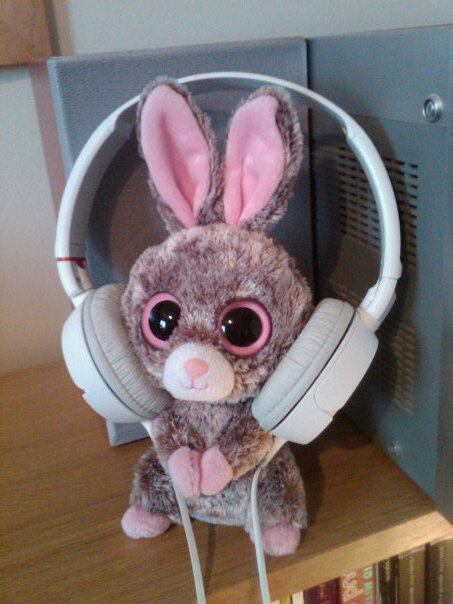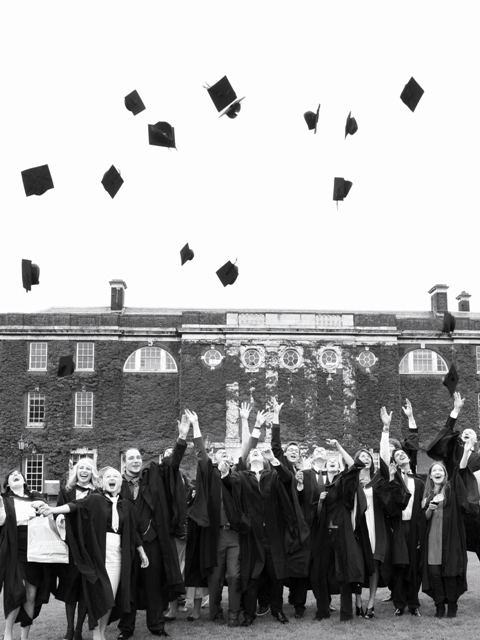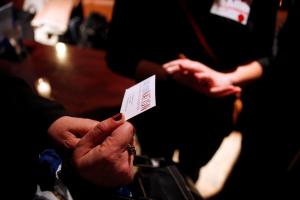Over the past few weeks you can’t have failed to notice the press coverage of the death of Baroness Thatcher, none more so than on the morning of Wednesday 17th April when the former Prime Minister’s state funeral took place.
The event was televised live from St Paul’s Cathedral on BBC One (with viewing figures reaching as high as 4.4 million), was front-page news of every newspaper in Britain, predictably set the social media world buzzing, and of course was also broadcasted on a range of radio networks including BBC Radio 5 Live and BBC Radio 4.
But the coverage of the funeral wasn’t all. Scanning the search results for ‘Thatcher’ on the BBC Radio iPlayer webpage shows 34 results of various broadcasts. The BBC Asian network presented a show debating whether Margaret Thatcher deserved a £10 million funeral. The BBC World Service featured the memoirs of Denis Oliver, who had been Mrs Thatcher’s driver for 14 years. The Money Box on BBC Radio 4 examined her finances. In fact Radio 4 produced a whole series of different interviews with people who had known or worked with Lady Thatcher titled Reflections on Thatcher. Then of course there are the countless numbers of news reports, programmes, and talking points featuring the news of her passing from all across the BBC from Local Radio to BBC Radio 2.
Of course for most stations the day was simply ‘business as usual’ with news bulletins focusing on the politics instead. On Monday 8th April when Mrs Thatcher died I was listening to Radcliffe & Maconie’s show on 6 Music. It was standard BBC protocol: when the news broke their usual reporter interrupted the broadcast to simply announce the news, then further details were given in the next scheduled news report. During the actual show itself nothing was mentioned. All very calm and collected and doing its best to avoid a big public brawl.
As in life Margaret Thatcher has caused an unparalleled divide in the British public opinion this week. The day of her death turned Twitter into a war-zone. Many openly celebrated and shared their happiness at her passing causing others to cry out in shock, disgust, and anger.
But this is where the death of Britain’s first female PM had its biggest impact on the radio world. There was a sudden surge in sales of the song ‘Ding Dong the Witch is Dead’ from the film the Wizard of Oz. Indeed, I saw a number of posts on Facebook celebrating the news with a link to this song on YouTube. Of course yet more outcry followed but what couldn’t be ignored was that this song was creeping its way into the official UK Chart Top 40 and this left Ben Cooper, Controller of BBC Radio 1 which hosts the official Top 40 every Sunday night, with a very big decision to make.
In his blog on the BBC website Cooper explained his decision to ‘treat the rise of the song, based as it is on a political campaign to denigrate Lady Thatcher’s memory, as a news story’. The show played a short excerpt of the song when in charted in ‘a short news report during the show which explains to our audience why a 70-year-old song is at the top of the charts’. Cooper highlighted the difficulties of the situation explaining that on the one hand there was a great deal of anger towards this campaign to promote the song, while on the other is the fact that the chart show cannot ignore a song that has been purchased by such a huge majority of the record buying public. Ultimately the chart show has a purpose to document and play, no matter how long for and within what context, the biggest selling singles of that week.
Cooper stated that he did not want to ‘inflame an already delicate situation’. Somewhat wishful thinking I feel as the decision was a compromise and that C-word is always a tricky one, isn’t it? Whatever decision you choose someone is bound to feel unfairly treated or annoyed with the outcome. It was a hard decision to make and I’m sure one that most of us would not have wanted to deal with ourselves. As with any other situation involving such a controversial figure, whatever decision Cooper or the BBC arrived at it would cause some backlash.
And indeed there were mixed reactions to the decision. On the comments left on Cooper’s blog alone one reader wrote:
‘The BBC is like the wet kid in class that you really wish would once, just once, stand up to the bullies… The BBC should have maintained the high ground. The song is legitimately in the charts, it contains no profanity, racial slurs, misogyny or any of the other things that many of the chart songs do contain. It doesn’t contain political lyrics, and is not a protest song. It should have just been played, like all the other chart songs, without any comment that would link it to any political view. The BBC has been weakened even further by today’s decision, and will now be asked to censor all sorts of things in future, with this held up as precedent.’
Another wrote:
‘When did the Ben Cooper’s political views become the deciding factor over whether something gets plays or not? ‘I find it as distasteful as anyone’ – you make a judgement based on your own political opinion and your own tastes. What about the hundreds of thousands, if not millions of license fee payers who not only don’t find it distasteful, but in fact wholly appropriate to play the song?’
But there was also some praise of the decision with many commentators calling it a ‘fair decision’ and a ‘good call’ on Cooper’s part. This contributor stated:
‘I think it’s a fair compromise… [I’m] getting increasingly depressed by the utter intolerance on both sides of this argument. What good exactly is the escalating hysteria on both sides of this achieving? I’m one of those who remember her faults more than her qualities – but what’s done is, alas, done.’
Personally, as soon as the news broke I decided to stay well out of putting forward any comments on the matter. The words of Mary-Anne Hobbs from the Sound Women on tour event I attended a few weeks ago were ringing in my ears: ‘Social media is not your priest, it’s not your mother and it’s not your best friend’. I watched my friends and colleagues tearing each other apart on Twitter and Facebook and so I simply decided to report, rather than comment, on what has been happening.
The only personal angle I will throw in is this. In Cooper’s explanation he states that ‘most of them [the Radio 1 listeners] are too young to remember Lady Thatcher and many will be baffled by the sound of the Munchkins from the Wizard of Oz’ (that is, of course, presuming that they even know what the Wizard of Oz is then, surely?) I think what I found most antagonising in this whole flurry of debate was this dismissal of the Radio 1 listener. It undermines any integrity the audience might have and yes, I know that over the past few weeks Twitter has been filled with worrying tweets of ‘who is Margaret Thatcher anyway?’ from many of the Radio 1 listener age group. But that surely doesn’t mean the whole of the Radio 1 listenership can be discredited? And furthermore isn’t it part of Radio 1’s duty to make sure that young people do know about events and people, both past and present, that have shaped modern Britain? In reality I think this is the attitude that needs to be addressed, possibly more so than how or why to play a few short seconds of a song.

















